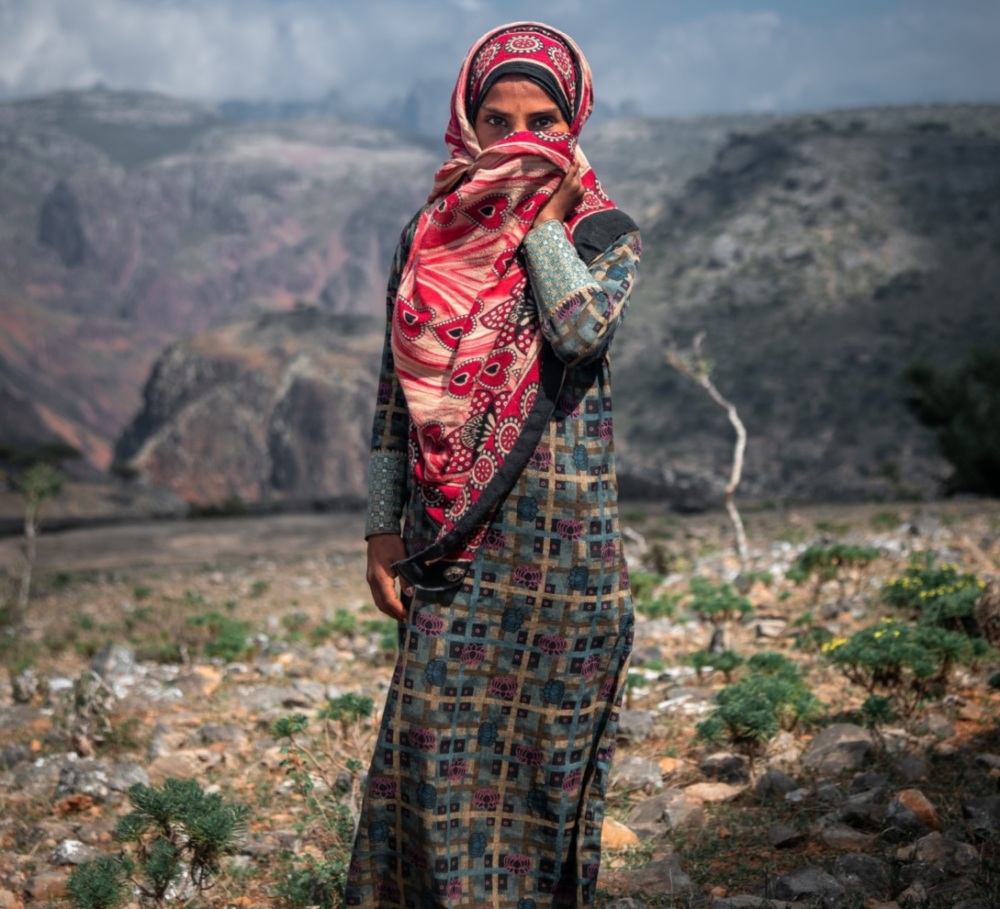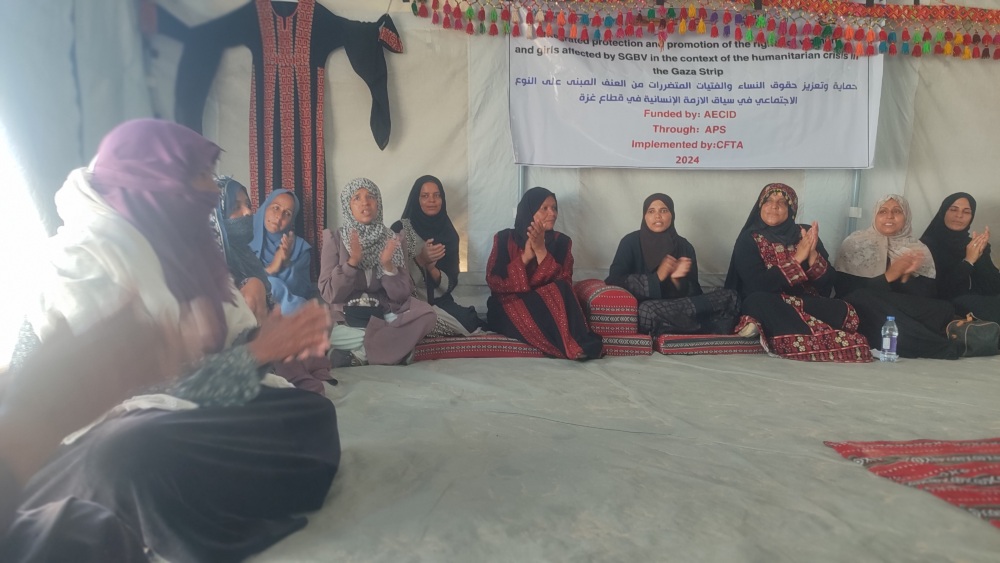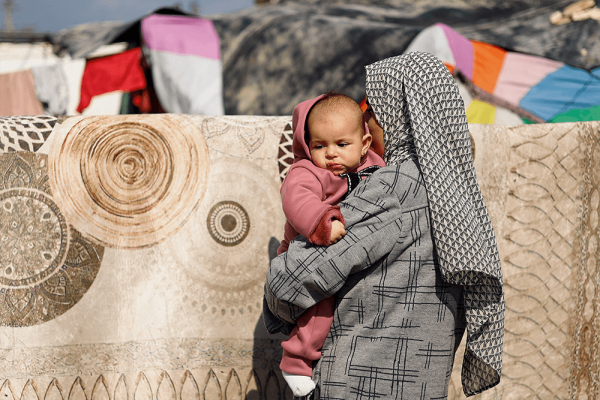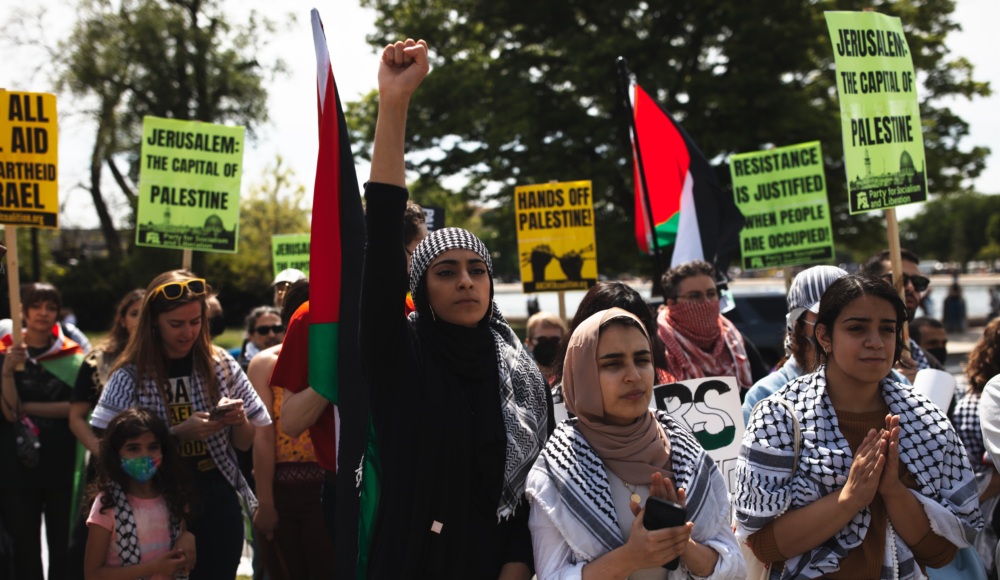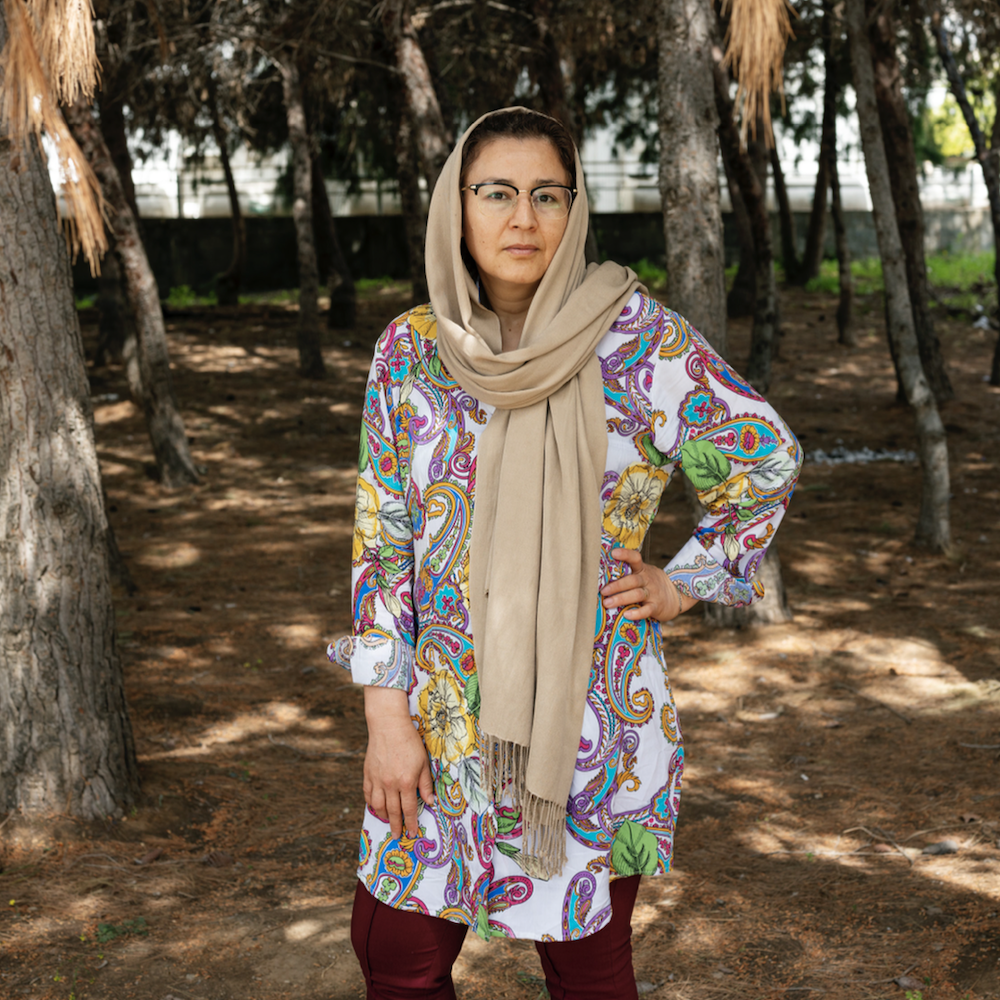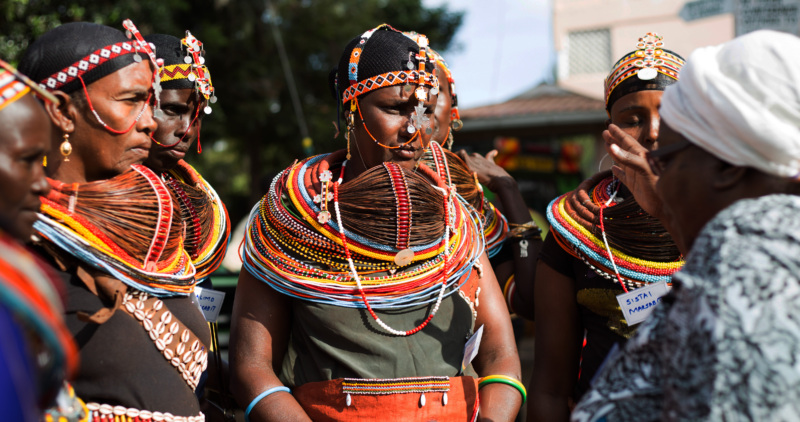Many mothers facing poverty and starvation — worsened by the US-backed blockade destroying Yemen’s economy and road closures around Taiz and other besieged communities — are forced to pull their daughters out of school to marry them off for dowry money. The UN International Children’s Emergency Fund reports that 72% of Yemeni girls are married before the age of 18, often with harmful and lifelong consequences. For example, Ibtisam* was 14 years old when she was forced to marry. Within a month, she was pregnant and suffering from severe beatings.
This war has also destroyed vital civilian infrastructure, including hospitals and water systems, specifically harming women and girls who are forced on longer, more dangerous journeys to reach clean drinking water or medical care, with tragic consequences. For example, one pregnant woman in Taiz could not reach the hospital because of security checkpoints and damaged roads. Her baby was stillborn.
The global food crisis exacerbates this danger. Yemen imports 90% of its food, including 42% of its wheat, from Ukraine. Before Russia invaded Ukraine, the World Food Programme was already reducing food rations in Yemen due to rising food and fuel costs and funding shortages. Today, 17.4 million Yemenis are food insecure, including 1.3 million pregnant women and new mothers who are acutely malnourished.
A TRUCE IS NOT ENOUGH
The US-backed Saudi-led coalition and the Houthis fighting in Yemen have committed widespread war crimes and crimes against humanity, with Yemeni civilians trapped in a spiraling crisis. With over 23 million people needing humanitarian aid, the truce created a fragile window for aid operations — including local efforts led by women — to scale-up assistance. It was a turning point in the crisis but did not last. As demonstrated by the fragility of these latest negotiations, a truce cannot guarantee an end to the war or survival for Yemeni families. A truce is a temporary balm, not a sustainable solution to Yemen’s crisis.
A truce also cannot end or repair the harm caused by US complicity in Saudi war crimes. President Joe Biden promised to treat the Saudi regime as a pariah, but instead, he capitulated, fist-bumping the Saudi Crown Prince on his official visit earlier this year — a man responsible for the murder of Washington Post journalist Jamal Khashoggi and the deaths of countless civilians in Yemen. We must put human rights and peace at the core of how the US sets policy priorities, but it’s not clear that the Biden administration has the political will to do so.
The next steps are clear: the United States must work with Yemeni civil society and humanitarian organizations to deliver aid, use diplomatic tools to extend the truce and work toward a comprehensive ceasefire and inclusive peace process. Yemeni women peacebuilders, including Muna Luqman, a 2022 finalist for the US Peace Institute Women Building Peace award, and Women Solidarity Network members, advocate for inclusive and locally-driven, gender-sensitive peacebuilding and possess vital expertise that effective US policy requires. The United States must also support and fund the work of Yemeni human rights defenders, especially women leaders, and ensure their inclusion in the peace process. And to build a foundation for diplomacy and accountability, Congress must pass the Yemen War Powers Resolution.
PASSING THE WAR POWERS RESOLUTION
The War Powers Resolution will not only cut off US support for the Saudi-led coalition but will also help build pressure for an extended truce and effective diplomacy. It helps confront the reality that the vast majority of direct civilian deaths have been caused by Saudi airstrikes enabled by US support, compounding the harms committed by other armed groups, including the Houthis.
By ending its complicity in Yemen’s destruction, the United States can support the conditions for Yemen’s women, who have been at the forefront of peacebuilding throughout the crisis, to strengthen communities, save lives, and inform peace negotiations. Grassroots peacebuilding efforts led by local women are the building blocks of a more comprehensive and inclusive agreement, a priority cited by both the UN and Biden, and a lasting peace. And research confirms: when women are meaningfully included in peace negotiations, the agreement is 35% more likely to last 15 years or more.
The United States cannot keep sacrificing Yemen to satisfy a regime that murders US journalists, price gouges energy markets, commits war crimes, and blackmails the UN to whitewash its crimes against Yemeni children. So instead, the United States must pass the bipartisan War Powers Resolution to end its complicity in war crimes in Yemen, reset its relationship with Saudi Arabia, and support the peace Yemeni women are building.
*This is a pseudonym.
